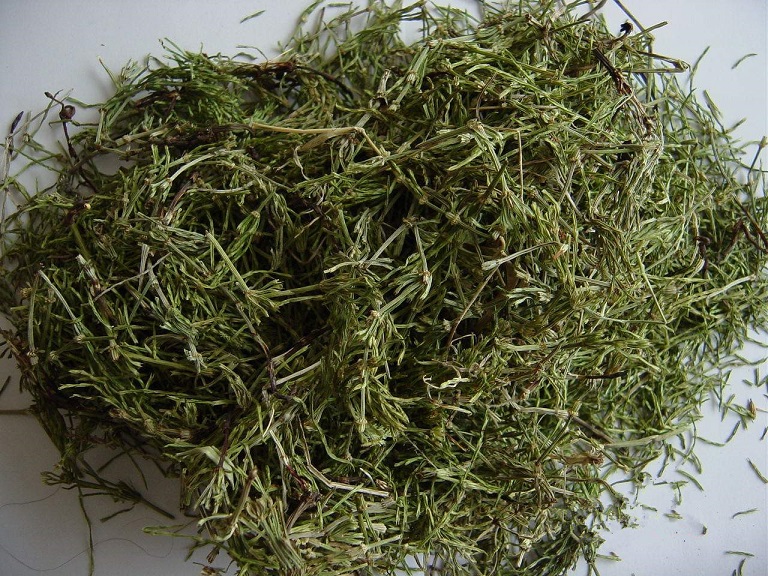Horsetail

Horsetail / Equisetum arvense
Common Names: Quyroughi, Atkuyrugu, Bottle-brush,
Chieh Hsu Ts"Ao, Cola De Caballo, Corn Horsetail, Dutch rushes, Equiseto Menor,
Field Horsetail, Horsetail, Horsetail Rush, Kilkah Asb, Mare"s tail,
Paddock-pipes, Pewterwort, Prele, Scouring Rush, Shave-grass, Sugina, Thanab Al
Khail, Vara De Oro, Wen Ching
Properties
Anodyne, anti-haemorrhagic, anti-septic,
astringent, cardiac, carminative, diaphoretic, diuretic, emmenagogue,
galactogogue, hemostatic, nervine, vulnerary.
Indicated for
Anaemia, arthritis, bed-wetting, cardiovascular
problems, chilblains, conjunctivitis, cystitis with haematuria, emphysema,
enuresis, general debility, gout, heavy menstrual bleeding, incontinence,
kidney and bladder troubles, kidney stones (quickens their removal), oedema
(menopausal), osteoporosis, prostate problems and disease, tuberculosis,
ulcers, urethritis, urinary tract infections.
The plant contains equisetic acid, which is thought
to be identical to aconitic acid. This substance is a heart and nerve sedative
that is a poison when taken in abnormally high doses.
Related products: Cut, whole plant, powder, extract
powder